- Home
- Jake Bible
Mega 5: Murder Island Page 26
Mega 5: Murder Island Read online
Page 26
He replaced the access panel and powered up the thruster, watching the gauges until satisfied it worked properly. The gauges remained steady and the hum of the drive shaft maintained an even note.
“Singing like a soprano,” he said aloud. He radioed Macklin. “Port thruster’s back on line. You can add it to the mix.”
Reluctant to go back outside in the cold to complete the next task on his daily list, replacing a winch motor bearing on the starboard crane amidships, he sat back to enjoy another cigarette where he wouldn’t freeze his ass off. Pall Mall Reds that cost him $5.33 per pack in his hometown of New Orleans, cost $9.80 in Anchorage, almost enough to make him quit smoking. At thirty-one, he had smoked two packs a day since sixteen years of age, and his body suffered the consequences. Climbing the eleven flights of stairs from the engine room to the bridge winded him. The last time he had visited the bridge to repair a faulty weather seal on a window, he had stood outside in the corridor for two minutes catching his breath.
The throb of the thruster and the soothing smoke filling his lungs slowly worked their magic on him, easing the tensions of the day. Maybe Robbins was right. He would try HR one more time. If the Kulik rolled snake eyes on hole twenty-seven, his chances of transfer to the Pacific were good. After half an hour, he figured he had milked the job for all the leisure time he could and decided to get moving before he fell asleep. He remembered the strange substance he had scraped from the filter, placed it in the cellophane wrapper from his cigarette pack, and took it with him.
The labs and infirmary in the superstructure took up most of deck eight. The black-and-white linoleum tiled floor always looked as if the cleaning crew had just mopped it, and the air smelled of disinfectant and alcohol. He had no idea of the function of most of the hi-tech equipment in the various lab compartments, but since he didn’t work on it, it didn’t concern him. He found Ilsa sitting behind a microscope in the biology lab, amid a clutter of specimen bottles filled with seawater. She had swept her long, reddish-blonde hair into a tightly braided ponytail that draped over her right shoulder. Her thick glasses, not needed for viewing the slides, lay on the table beside her. When she looked up at his approach, he noticed the twin furrows above her too-thin nose and the intense look of concentration in her jade green eyes. He laid his prize on the desk before her like a cat presenting a dead mouse to its master.
“What’s this, Mr. Iverson?” she asked, somewhat irritated at his interruption of her analysis.
Asa shook his head and offered her his best smile. “Asa, please. Mister sounds too formal.” So far, their relationship had been no more than an occasional exchange of pleasantries in the cafeteria or a game of chess in the ship’s lounge, but he hoped for something more. “I hoped you could tell me. I found it gumming up the works in the port thruster.”
She sighed, but took a fresh slide from a box, and with a pair of tweezers, dropped a sample of the substance on the slide, before placing it beneath the lens. After almost two minutes, he began to think she had forgotten about him; then, she glanced up at him with a puzzled expression.
She cocked her head to one side and asked, “Where did you find this?”
“It was clogging the intake on the aft port thruster. What is it?”
She took another glance through the microscope. “I’m not sure.”
Her uncertainty surprised him. Ilsa had never been afraid to express her opinion on matters, even at the cost of drawing hard looks from her fellow scientists. “Please tell me it’s not walrus shit.”
She frowned at him. “No, but it is definitely organic. It looks like kelp, but of a variety that I’ve never seen before, at least not living. It looks,” she paused and frowned, “ancient. If I’m right, this genus of kelp hasn’t been around for at least fifteen million years.”
Asa swallowed hard to keep from choking. “Fifteen million …”
“Years, yes,” she finished, “since the later part of the Middle-Miocene Epoch.”
“That’s crazy,” burst out of his mouth before he could catch himself.
To his surprise, she nodded in agreement. “It would be, except I’ve been examining seawater samples collected over the last two days.”
“And,” he prompted when she fell silent.
“I’ve identified living phytoplankton and crab larvae thought extinct for twenty million years.”
“That’s …” he almost said crazy again, but caught himself. He stared at her, trying to judge if she was attempting to pull his leg. She had never displayed an active sense of humor, but her remark sounded like the punch line of a joke. Her face betrayed no telltale signs of amusement. In fact, she looked frightened. He did not doubt her findings—she would not have been aboard the drillship if she weren’t a competent biologist. Global Petroleum only hired the best. Still, he had to ask. “Are you sure?”
She sighed. “Of course, I’ll send samples to the biology department at the Alaska Pacific University for verification, but, yes, I’m fairly confident of my identification.”
He had never studied archaeology or kept abreast of marine biology discoveries, but for some reason, the idea of viable twenty-million-year-old crabs frightened him. “Why?” he asked.
“Do you mean why the new, previously believed extinct species? It’s possible they came up through the drill hole when the drill struck a cavity. Clark in the chemistry lab took gas bubble samples. He found a mixture of oxygen, nitrogen, carbon dioxide, and methane with traces of hydrogen sulfide. The kelp has a symbiotic relationship with sulfur-eating bacteria. That’s how it can survive without sunlight.” She smiled. “I think we’ve discovered an underwater biome, one that has survived since the Cenozoic Era, the Middle-Miocene Epoch, perhaps the Pliocene. This could make my career.”
He was glad someone on the Kulik was happy, but he hated to burst her bubble. “You’d better work fast. If this hole is dry, we may pack up and go home in a week or less.”
Her pale complexion paled even further. “We can’t. This is … this is a tremendous find.”
“Maybe so, but it won’t pay the bills, Ilsa. Global Petroleum isn’t in the noble benefactor business. They want oil.”
She rose from her seat. “I must speak to the captain. Maybe he—”
The entire cabin rose and fell like a rollercoaster car, leaving his stomach hanging somewhere halfway up his esophagus. Ilsa staggered into his arms. He grabbed her and held on tight, as both of them slammed into the wall. He turned to take the brunt of the impact. Her chair rolled across the room and crashed into the wall beside them with enough force to crack the wooden paneling. Glassware and laptops slid from her desk and lab tables and crashed to the floor amid a blossoming of glass fragments. Books spilled from shelves, pelting his body. The room danced for several seconds before settling again. Alarm bells began sounding throughout the ship. Ilsa stared at him stricken with horror. His stomach twisted itself into a hard knot.
“That’s no thruster malfunction,” he said.
“Rogue wave,” Ilsa suggested.
He shook his head. “In the Arctic? Not likely.”
The room righted itself but continued to shudder. He released Ilsa and stuck his head out the door to peer down the passageway. One of the staff raced down the passageway. Asa yelled at him. “Hey! What’s happening?”
The man barely glanced over his shoulder as he disappeared down the stairs. In a voice rife with panic, he yelled back, “We struck an air-filled pocket with the drill. The seafloor is collapsing beneath the ship.”
The tight knot in Asa’s stomach began to crawl back up his throat, threatening to squeeze the air from his lungs. His heart shuddered and skipped two beats before reasserting itself. A sudden volume of gas bubbles in the water could spell disaster. The 55,000-ton drillship could float on water, but not on air.
He turned to Ilsa. “We have to get to a lifeboat. Grab your coat, anything warm.” She stood and stared at him in confusion. “Move!” he yelled to snap her out of her stupor. To
his relief, she took her heavy coat, a hat, and gloves from the coat rack. She glanced around the room, almost in tears at the disarray, before joining him. He had left his parka in the thruster control room, too far below decks to go after. He grabbed a voluminous bright red parka from the coat rack.
“That’s Anderson’s parka,” Ilsa said.
That explained the large size. Jason Anderson was one of the biggest men on the ship, most of it his rotund belly. “If we see him, I’ll give it back to him.”
He grabbed Ilsa’s hand and started down the passageway toward the stairs, lurching into the walls as the ship twisted and rolled from side to side. He worried that too much torque could snap the anchor chains. The thrusters alone could not hold the ship steady. He thought about the drill crew. Any roughnecks or drillers on the derrick and not harnessed in would have been flung into the freezing water or onto the steel deck below. If the ship rolled too far onto its side, the weight of the derrick would topple the ship.
On the way down the stairs, the abandon ship signal began to wail, seven long blasts on the air horn. He and Ilsa burst out of the hatch on the deck main level and stepped into chaos. Men bolted from open hatches and from beneath the two-hundred-foot drill tower, racing toward the four lifeboat stations in the bow, where the ships’ crew worked to winch them over the side and into the heaving sea. Ninety-foot-long joints of twelve-inch-diameter drill pipe shaken loose from the vertical pipe rack. Asa watched in mute horror as a fifteen-foot-long section of metal bracing from the collapsing derrick fell on top of one hapless worker, crushing him beneath tons of twisted steel. Ilsa screamed and froze.
As the ship shook itself to pieces around them, he dragged her toward the only lifeboat already over the side of the ship, one on the forward starboard side, straight through the hail of falling debris. He trusted to luck. He took a deep breath and didn’t look up or slow down in their headlong rush to reach salvation. If they stopped, they would die. If the derrick collapsed, they would have no time to avoid it. It would ensnare them in its miles of steel cable and sweep them into the depths of the sea.
The top-heavy drillship had become more unstable in the roiling sea. Sulfur hydroxide rose from bubbles breaking the surface around the ship, churning the water for five-hundred feet in all directions into a cauldron. A thick, swirling mist reeking of rotten eggs floated just above the surface, as warm water from the underwater caverns mixed with the frigid waters of the Chukchi Sea. Asa also recognized the stench as the sweet odor of dichloromethane, used as a degreaser. It occurred naturally when methane from decaying organic material mixed with chlorine under heat. If Ilsa were right, the cavern contained lots of algae and kelp.
The ship’s bow slid sideways several yards, as if yanked by a giant, invisible hand. The deck tilted ten degrees to starboard. The portside lifeboats careened wildly, bright orange-and- white pendulums crashing into their cranes and shattering their fiberglass hulls like cracking an egg. Ilsa fell, pulling Asa down to the deck on top of her, a position that at any other time he would have found pleasant. Now it only slowed them down. They slid across the sloping deck toward the railing, sections of which the crew had removed to lower the lifeboats. The yawning gap loomed directly in front of them. Ilsa screamed as she slid over the side, her eyes wide with fright. Asa made a frantic grab at a steel hawser with his free hand, as the other clung desperately to Ilsa. He managed to grasp the cable but felt it go slack in his hand as he continued to slide. Just as his legs dropped over the side, the cable snapped taut. The pressure on his right arm became unbearable, as Ilsa and his combined weights threatened to pull his arm from his shoulder.
Ilsa dangled below him, staring up at him and pleading with her eyes. His gaze fell to the sea below them, a churning frigid beast waiting to suck the heat from their bodies and devour them whole. Ignoring the wrenching pain in his shoulder, Asa summoned all his strength and slowly pulled Ilsa back up the side of the ship.
“Find a foothold,” he yelled down at her over the din of screeching metal and men’s screams. “Anywhere to brace your feet.”
He felt her scramble until she found purchase on a weld between hull plates. “Okay,” she said. Her voice quavered on the verge of tears, but she retained her wits, trusting him to save her. Asa hoped she had not misplaced her faith in him. He was determined to save them both.
“Okay, now climb up my arm.” She glanced back down at the sea below her and hesitated. “Hurry,” he urged. He didn’t know how much longer he could retain his grip in his rapidly numbing left hand.
Using the weld for traction, she climbed up his arm. The ship heaved back to port, aiding their frantic struggle to re-board the ship. As soon as she sprawled safely on the deck, Asa released her, shaking his numb arm to restart the circulation. He pulled himself farther away from the edge. Afraid to stand because of the tremors coursing through the ship like mini-earthquakes, they crawled across the deck toward the lifeboat, his dislocated right arm dragging uselessly behind him.
Despite their heroic efforts, they did not make it. The ship gave up the struggle to remain upright. The flexible riser pipe, stretched beyond its endurance, snapped at the moon pool. The tensioner cables parted with the gunshot crack of a volley from a firing squad. Like a Macy’s Thanksgiving balloon that had lost its tether, the drillship floated free, bobbing wildly on the churning water. The massive Global Kulik groaned out its death dirge, and like a whale in Sea World showing off for the spectators, rolled over onto its belly, catapulting him and Ilsa through the air like a pair well-tossed jai-alai balls. One dizzying moment they were flying, and then struggling in the frigid water the next. The shock of the near-freezing water numbed the pain produced from striking the surface. He remembered watching the hulk of the ship falling relentlessly toward them, and then the giant wave that separated him from Ilsa as the ship landed less than ten yards away, but little else.
The heavy borrowed coat became a shroud trying to drag him to the bottom. He shed it like a molting lobster, fighting through the folds of cloth to reach the surface. The cold water seared his exposed flesh like a fire, as he frantically searched the heaving sea for Ilsa. He saw a dozen men drifting away from the rapidly sinking ship but no sign of Ilsa. The sea had taken her, as it soon would take him.
He spotted a bright yellow neoprene equipment box floating fifteen yards away, his only hope of survival. With his injured arm, he could not swim, but he kicked his legs to move his body toward it. Using only his good left arm, it took all his strength and willpower to scramble atop the box. It was too small. Every movement threatened to overturn the wobbly makeshift life raft. He curled into fetal position to keep his extremities out of the water and to steady the raft. Surprisingly, he heard no screams, no cries for help. The eerie silence after four months of constant background throbbing frightened him almost as much as the ship’s sinking. He checked to make sure his earplugs weren’t in and discovered them still dangling around his neck. The silence was real and disconcerting.
Asa held out little hope for rescue. He didn’t know if the captain had time to radio a distress call or if any ships were in the immediate vicinity. The regular supply ship would not arrive for another day. He could expect no rescue from his fellow shipmates. None of the four lifeboats had gotten away. All had gone to the bottom with the ship. The few minutes warning would not have been enough for the crew sleeping below decks or the engine room crew to reach topside. If he had not found the kelp and taken it to Ilsa … In the end, it would not matter. He would die of hypothermia, a slower death than drowning but just as permanent. Already, he could feel his mind shutting down from the extreme cold. He tried to do simple math problems, recall the steps necessary to break down a carburetor, but his mind would not focus. His arms and legs grew numb, as his blood pooled in his body’s center to conserve heat.
Twenty minutes after the sinking, his strength almost gone, his body shivering out its last heat from his muscles, Asa saw a gray shape like a submarine’s sail brea
k the surface. He tried to wave his good left arm to hail it, but could not move. As the gray silhouette drew nearer, he decided the shape too odd, triangular, rather than oblong, to be a conning tower, and a second, smaller sail seemed to move side to side behind it.
Slowly, the entire bulk of the object surfaced. It was not a submarine or rescue craft of any kind. At first, he thought his failing mind had conjured the unbelievable hallucination, a gray ghost Grim Reaper to take him away. He stared numbly at the largest shark he had ever seen, that he had ever imagined. He estimated its length at over a hundred-eighty feet. The pale gray dorsal fin he had mistaken for the conning tower of a submarine protruded twenty-five feet into the air. The shark glided like a silent nightmare toward several bodies floating on the surface. Asa watched in horror, as the shark swallowed three bodies in one massive gulp. That the creature’s eyes were dead, pupil-less white orbs only made the shark appear more ghostly. Sightless, it detected the corpses with its keen sense of smell.
Its meal finished, it turned and began circling him in a leisurely fashion. He willed his heart to stop beating, fearing the shark could hear its frantic hammering through the equipment box. He waited for the creature to eat him, almost welcoming the end to his current frozen misery. At least the entire crew of the Global Kulik would be together again.
To his surprise, the shark turned away and disappeared beneath the surface, leaving hardly a ripple. Had he imagined it? A few minutes later, the sound of a helicopter approaching him broke the stillness. He looked up and saw the white underbelly of a U.S. Coast Guard Sikorsky MH-60T Jayhawk helicopter hovering twenty feet above him. The whoosh of the rotors sounded like a voice speaking to him, but he could not make out the words. He tried to cry out for help with his frozen larynx and only produced a weak squeak. He watched with frozen tears, as a diver dropped from the open door and splashed into the sea beside him. He tried to help the diver fasten a harness around his chest and shoulders, but his arms and hands were too numb to work. He lay like a corpse and allowed the diver to buckle him in. He slid into the water, choking on a mouthful of icy water.

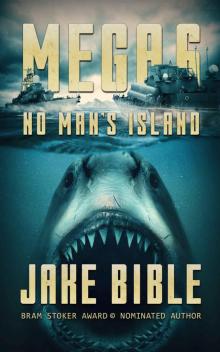 Mega 6: No Man’s Island
Mega 6: No Man’s Island Quantum Chaos: A Roak: Galactic Bounty Hunter Novel
Quantum Chaos: A Roak: Galactic Bounty Hunter Novel One Foggy Night: A DEAD MECH Prequel Short
One Foggy Night: A DEAD MECH Prequel Short The Savageside (The Flipside Sagas Book 2)
The Savageside (The Flipside Sagas Book 2)![(Flipside 02) The Savageside [A] Read online](http://i1.bookreadfree.com/i/03/19/flipside_02_the_savageside_a_preview.jpg) (Flipside 02) The Savageside [A]
(Flipside 02) The Savageside [A] Max Rage: Twelve Punches To Mars!
Max Rage: Twelve Punches To Mars! Z-Burbia (Book 2): Parkway To Hell
Z-Burbia (Book 2): Parkway To Hell Rocky Mountain Die
Rocky Mountain Die Roak's War: A Roak: Galactic Bounty Hunter Novel
Roak's War: A Roak: Galactic Bounty Hunter Novel Kaiju Storm (Kaiju Winter Book 2)
Kaiju Storm (Kaiju Winter Book 2) Kaiju Winter: An End Of The World Thriller
Kaiju Winter: An End Of The World Thriller Max Rage: Intergalactic Badass!
Max Rage: Intergalactic Badass! Z-Burbia 7: Sisters of the Apocalypse
Z-Burbia 7: Sisters of the Apocalypse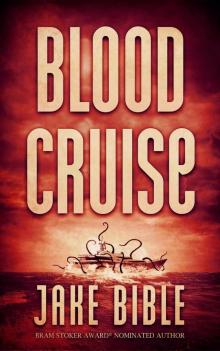 Blood Cruise: A Deep Sea Thriller
Blood Cruise: A Deep Sea Thriller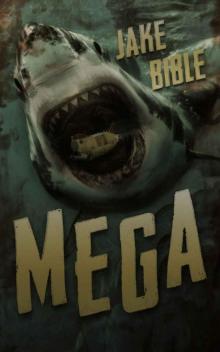 Mega
Mega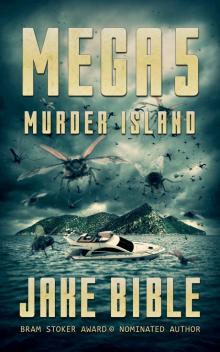 Mega 5: Murder Island
Mega 5: Murder Island Bethany And The Zombie Jesus: A Novelette With 11 Other Tales of Horror And Grotesquery
Bethany And The Zombie Jesus: A Novelette With 11 Other Tales of Horror And Grotesquery Black Box Inc. (Black Box Inc. Series Book 1)
Black Box Inc. (Black Box Inc. Series Book 1) The Flipside
The Flipside Black Box Inc.
Black Box Inc. Mega 4: Behemoth Island
Mega 4: Behemoth Island Paradox Slaughter
Paradox Slaughter Razer Edge: A Roak: Galactic Bounty Hunter Novel
Razer Edge: A Roak: Galactic Bounty Hunter Novel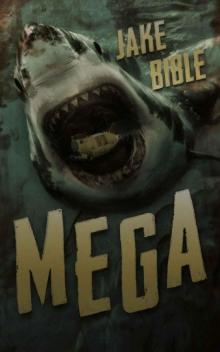 Mega: A Deep Sea Thriller
Mega: A Deep Sea Thriller In Perpetuity
In Perpetuity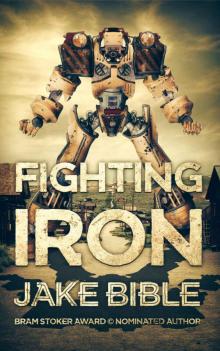 Fighting Iron
Fighting Iron Outpost Hell
Outpost Hell One Foggy Night
One Foggy Night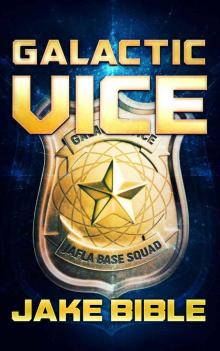 Galactic Vice: A Jafla Base Vice Squad Novel
Galactic Vice: A Jafla Base Vice Squad Novel Blood Ghast Blues (Black Box Inc. Series Book 2)
Blood Ghast Blues (Black Box Inc. Series Book 2) The Man With No Face
The Man With No Face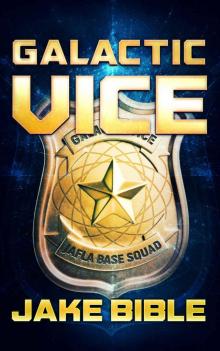 Galactic Vice
Galactic Vice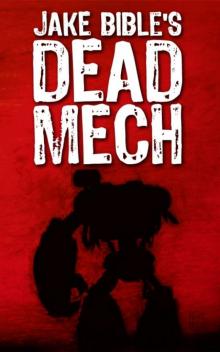 Dead Mech
Dead Mech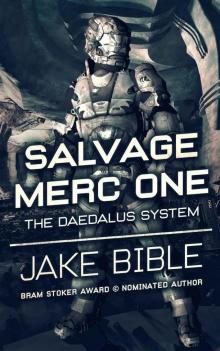 Salvage Merc One: The Daedalus System
Salvage Merc One: The Daedalus System Blood Ghast Blues
Blood Ghast Blues Dead Team Alpha: A Post Apocalyptic Thriller
Dead Team Alpha: A Post Apocalyptic Thriller ScareScapes Book One: Phantom Limbs!
ScareScapes Book One: Phantom Limbs! Nebula Risen: A Roak: Galactic Bounty Hunter Novel
Nebula Risen: A Roak: Galactic Bounty Hunter Novel Kaiju Inferno (Kaiju Winter Book 3)
Kaiju Inferno (Kaiju Winter Book 3) Stone Cold Bastards
Stone Cold Bastards Agent Prime
Agent Prime Paradox Slaughter: A Roak: Galactic Bounty Hunter Novel
Paradox Slaughter: A Roak: Galactic Bounty Hunter Novel Z-Burbia 4: Cannibal Road
Z-Burbia 4: Cannibal Road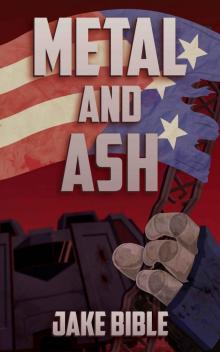 Metal and Ash (Apex Trilogy)
Metal and Ash (Apex Trilogy) AntiBio 2: The Control War
AntiBio 2: The Control War ROAK: Galactic Bounty Hunter
ROAK: Galactic Bounty Hunter Dead Team Alpha (Book 2): The Stronghold
Dead Team Alpha (Book 2): The Stronghold Nebula Risen
Nebula Risen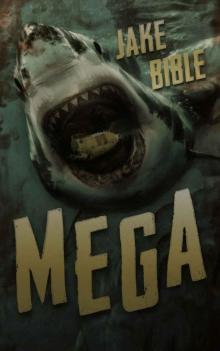 Mega: A Deep Sea Thriller (Mega Series Book 1)
Mega: A Deep Sea Thriller (Mega Series Book 1)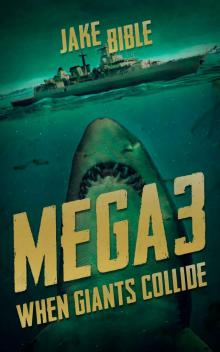 Mega 3: When Giants Collide (Mega Series)
Mega 3: When Giants Collide (Mega Series) EverRealm: A LitRPG Novel (Level Dead Book 1)
EverRealm: A LitRPG Novel (Level Dead Book 1)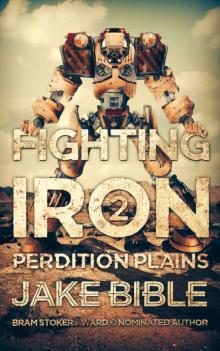 Fighting Iron 2: Perdition Plains
Fighting Iron 2: Perdition Plains One Foggy Night: A DEAD MECH Prequel Short (Apex Trilogy)
One Foggy Night: A DEAD MECH Prequel Short (Apex Trilogy) Razer Edge
Razer Edge Drop Team Zero
Drop Team Zero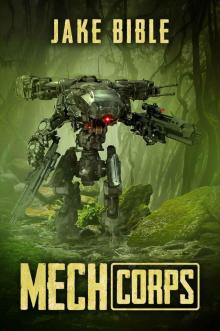 Mech Corps
Mech Corps I
I Dead Team Alpha 2_The Stronghold
Dead Team Alpha 2_The Stronghold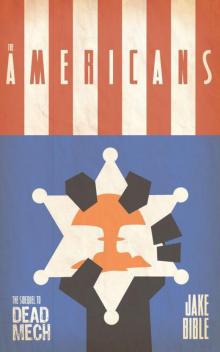 The Americans: Apex Trilogy, Book 2
The Americans: Apex Trilogy, Book 2 Max Rage
Max Rage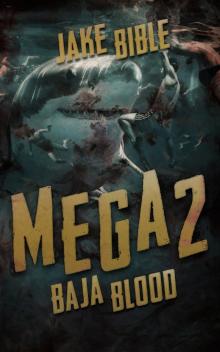 Mega #02 Baja Blood
Mega #02 Baja Blood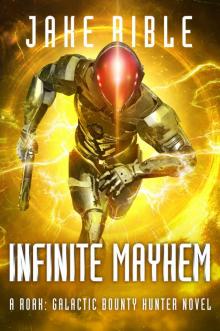 Infinite Mayhem
Infinite Mayhem